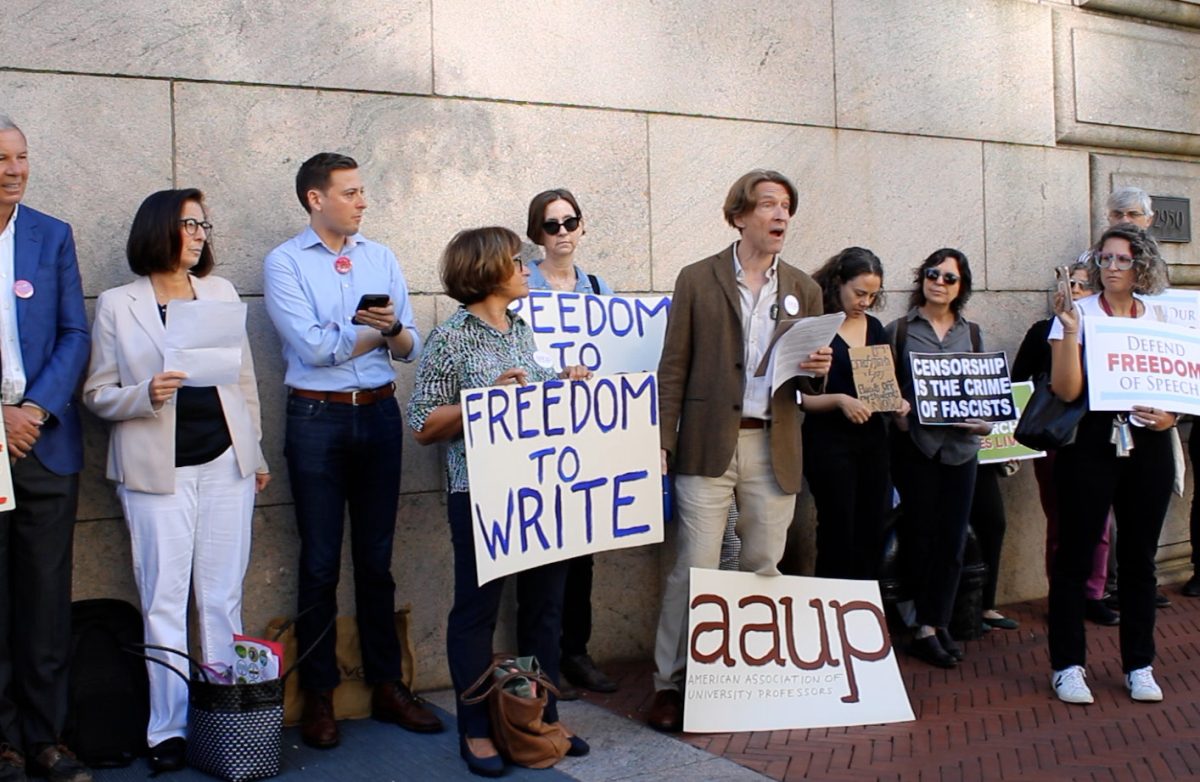
During the “What Is: Impeachment?” discussion at the Days-Massolo Center on Wednesday, Sept. 12, Philip A. Klinkner, James S. Sherman Professor of Government, explained how impeachment is defined, its brief history in the United States, and what it takes to be impeached. These issues have been in the public discourse following President Trump’s election and the allegations of corruption and illegal dealings he may have had with Russia.
So, what is impeachment? Professor Klinkner defined impeachment as a “mechanism within the Constitution whereby elected government officials can be removed from office.” A simple majority of the House of Representatives can vote to approve an article of impeachment for the president’s illegal actions, including misdemeanors and crimes. They then bring charges if there’s enough evidence to move forward with a trial. In the event of an impeachment, the president would be tried by the Senate and removed from office with a two-thirds vote from the Senate and from the House. The process takes place in the legislature as part of its checks and balances system. A presiding judge, the Chief of Justice of the Supreme Court, must also be present, however, they do not play a significant role in the process. Klinkner described the two times where an impeachment procedure occurred in the United States — in 1868, with President Andrew Johnson, and in 1998, with President Bill Clinton. Andrew Johnson, as Klinkner described, was one of the most racist presidents in U.S. history, characterized by lenient policies towards white Southerners. Johnson violated the Tenure of Office Act, which was a federal law that aimed to restrict the President’s ability to remove office-holders without the Senate’s approval. Bill Clinton, meanwhile, was tried for impeachment on charges of perjury and obstruction of justice following his affair with Monica Lewinsky. Neither Clinton nor Johnson were impeached; Johnson’s impeachment failed by only one vote, while Clinton’s impeachment failed by many (actually causing him to gain even more popularity). Richard Nixon did not face the impeachment process because he resigned, but most certainly would have faced it had he not following the Watergate Scandal and his failure to comply with Congress’ subpoena requests.
The third major area of impeachment which Klinkner discussed was about what it really takes to be impeached in the U.S. Klinkner said that while high crimes and misdemeanors are what constitute the grounds for an impeachment, a misdemeanor can mean many things — for example, a parking ticket falls under that category, but we likely wouldn’t impeach a president over that. “High crimes” is also nebulous language, and, ultimately, it constitutes whatever the Senate and House of Representatives decides it to be. Klinkner said that it is also important to note that every impeachment that has occurred has only happened when the president is of the opposite party from the party that controls Congress, which is why the issue is so dependent on the political makeup of Congress at a given time.
Two other important factors to consider are that sitting presidents cannot be indicted for crimes, and impeachments cannot be appealed to the Supreme Court. There is also the issue of whether a president can be impeached for acts that occurred before taking office. Klinkner concluded that there are two truly decisive factors: the severity of the crime and who’s in control of Congress.
Towards the end of the discussion, the question about the likelihood of President Trump facing an impeachment was raised. Klinkner responded that much does depend on Robert Mueller’s investigation, and that while Mueller could issue a report and give it to the Justice Department to catalyze an impeachment process, that’s unlikely to happen. If it were blatantly obvious that Trump had engaged in criminal activity, then there would be some possibility of impeachment, but he would not be impeached over obscure allegations. If the impeachment process does take place, there would be a need for 16 Republican Senate votes, which is very unlikely to happen. He says that Democrats must also consider how far they’re really willing to take this, since it can simply lead to greater popularity for Trump and the Republican Party, similar to what happened after Clinton’s failed impeachment.
Professor Klinkner stressed that the main takeaway from the discussion is that impeachment is ultimately a political act, not a legal one. He also recommended that community members check out the narrative podcast “Slow Burn”, produced by
Slate
magazine, for those who are interested in learning more about impeachment.

















